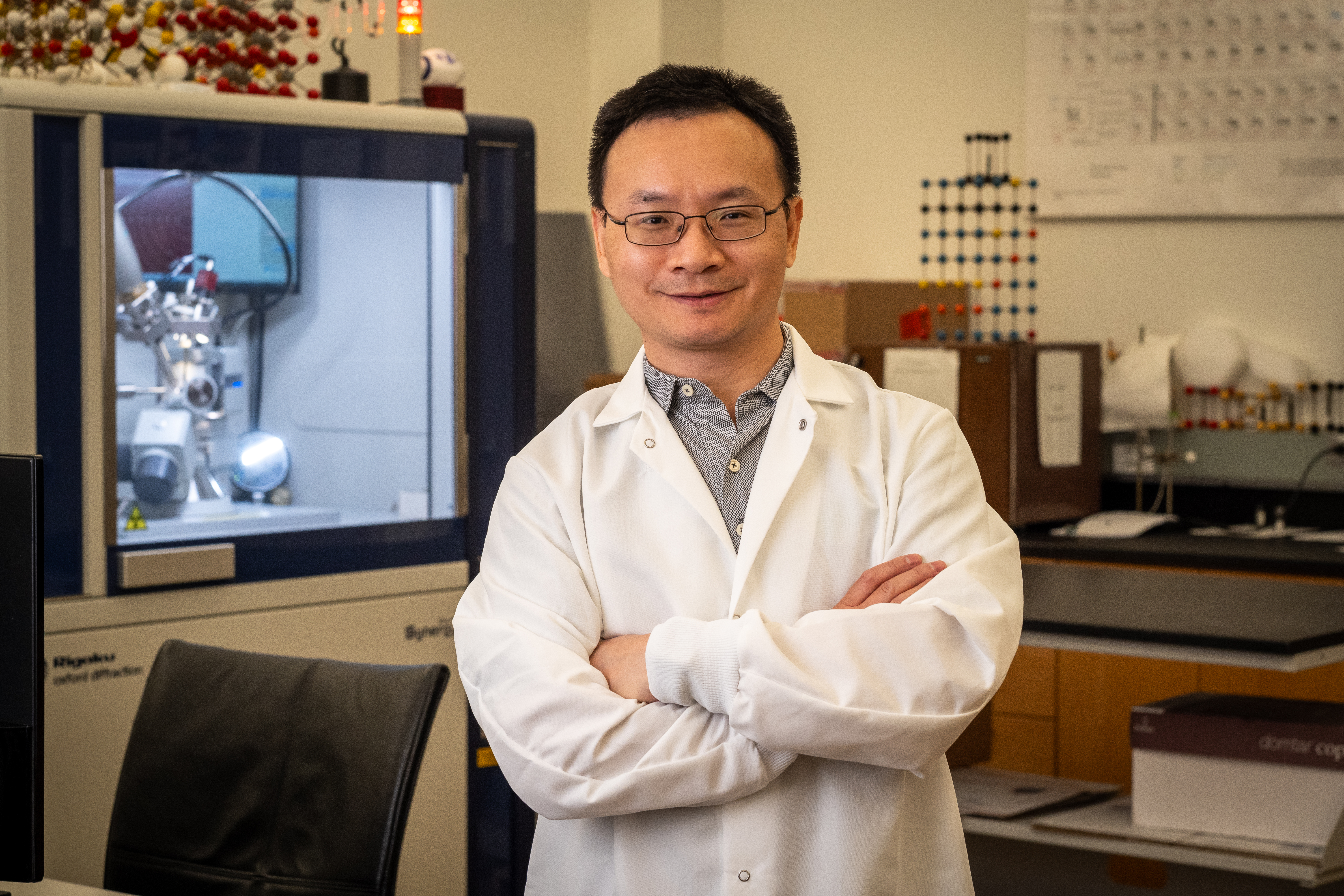Monday, January 29, 2024
 DENTON (UNT), Texas — University of North Texas Professor Shengqian Ma, a global leader in nanoporous materials research, earned
the 2024 Edith and Peter O'Donnell Award in Physical Sciences from the Texas Academy of Medicine, Engineering, Science and Technology (TAMEST). He was chosen for his innovative work in the field of decontamination.
DENTON (UNT), Texas — University of North Texas Professor Shengqian Ma, a global leader in nanoporous materials research, earned
the 2024 Edith and Peter O'Donnell Award in Physical Sciences from the Texas Academy of Medicine, Engineering, Science and Technology (TAMEST). He was chosen for his innovative work in the field of decontamination.
TAMEST is a nonprofit interdisciplinary scientific organization dedicated to enhancing the research community in Texas. Ma, the Welch Chair in UNT’s Department of Chemistry, is one of five Texas-based researchers being honored in the TAMEST 2024 Edith and Peter O'Donnell Awards. Ma is the first-ever UNT recipient of this award. He was selected for his individual contributions addressing the essential role that science and technology play in society and for how his work meets the highest standards of exemplary professional performance, creativity and resourcefulness.
In addressing Earth’s growing environmental concerns, Ma’s research, sparked by the Deepwater Horizon oil spill in 2010, focuses on water-related challenges. Specifically, he’s exploring solutions for removing oil from the ocean, aiming first to understand the complex environment.
Ma’s most significant contributions come in his team’s development of porous organic polymer-based nanotraps. These nanotraps can be used for a variety of applications, such as enhanced effectiveness in cleaning up after an oil spill, removing mercury from water or treating nuclear waste. The materials also can be used to store gas molecules, like methane, hydrogen or carbon dioxide.
“Dr. Ma’s research focuses on figuring out how we can get the things we don’t want to be exposed to out of the environment,” said Pamela Padilla, UNT’s vice president for research and innovation. “I think he is creative and he’s a great mentor for our students. Dr. Ma’s work exudes enthusiasm and delivers results. He is highly regarded internationally within his field, and there aren’t enough positive words for Dr. Ma and his work.”
His materials not only capture toxins in water, but also can extract valuable elements — such as uranium from seawater and lithium from brine water. These extracted elements can then be utilized for energy purposes. According to Ma, the uranium in the ocean alone could be used to provide electricity to humanity for over 20,000 years.
More than $1.5 million has been awarded to more than 75 recipients in the categories of medicine, engineering, biological sciences, physical sciences and technology innovation since the inception of the O'Donnell Awards in 2006. Sixteen O’Donnell Awards recipients have gone on to be elected to the national academies, including four who hold dual academy elections.
“The Edith and Peter O’Donnell Awards bring together a broad group of disciplines and expertise and creates the space to talk about cross-disciplinary approaches to future solutions – and we couldn’t be prouder of this year’s group of innovative recipients,” said Oliver Mullins, a fellow with the National Academy of Engineering and committee chair for the Edith and Peter O’Donnell Awards. “These researchers are transforming the future of science and innovation in our state, and these awards are an important mechanism for maintaining a link between academia and industry and moving the research needle forward for our society.”
UNT News Service Phone Number: (940) 565-2108
Media Contacts:
Devynn D. Case
Devynn.Case@unt.edu
940-565-3509
From UNT News – Research